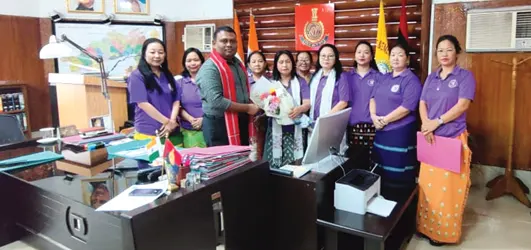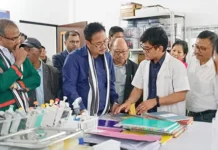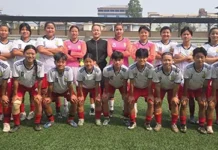ITANAGAR, 6 Oct: Alleging discrepancies in the investigation conducted by the East Kameng police into the Seppa sex racket case, the Arunachal Pradesh Women’s Welfare Society (APWWS) has demanded that the case be reinvestigated by a woman police officer under the supervision of a senior officer.
In a letter to the DGP, the APWWS said that “only women police officers, not below the rank of SI, should conduct the investigation into the case registered under the Protection of Children from Sexual Offences Act, 2012, whereas the investigation into the instant case was conducted by a male police officer under probation.”
The APWWS said that the FIR was lodged on 29 August, and that the suspects were arrested, only to be released on bail due to inconsistencies in the investigation process, “which was reflected in the bail order of the alleged accused by the special POCSO judge.”
“On inquiry by our team, we found that there is a severe lack of sufficient police officers, and there is no woman police officer in the women police station in Seppa, East Kameng. Such a situation reflects the commitment of the state government towards the justice delivery system on the ground.
“When serious cases like POCSO are reported but the perpetrators are enlarged on bail due to discrepancies in the investigation, it is indeed a matter of concern,” the letter read.
The APWWS further demanded that the home department play a proactive role in delivering justice to the people and ensure that well-trained women police officers are posted at women police stations in the districts to handle heinous crimes against women and children.
“Good governance is achieved when service delivery reaches all citizens,” it said.
“The police department should ensure the safety and protection of the victim girls and all the witnesses involved in the Seppa sex racket, which involves minors, considering the sensitive nature of the case,” the APWWS said.
It urged the police department to conduct training programmes to educate the entire police department on proper investigation procedures and the significance of filing chargesheets promptly under the POCSO Act; establish a specialised team of officers in the state, specifically dedicated to handling POCSO cases; and create separate sections in all the districts supervised by the police headquarters to expedite investigations.
The APWWS has urged the department to also ensure that all women police stations are adequately staffed and led by women police officers.
“Opening stations should not be merely symbolic; they must be fully operational and equipped to handle the rising cases affecting women and children in the state,” the APWWS said, and sought the DGP’s intervention in these matters to uphold justice and protect the vulnerable in the society.



